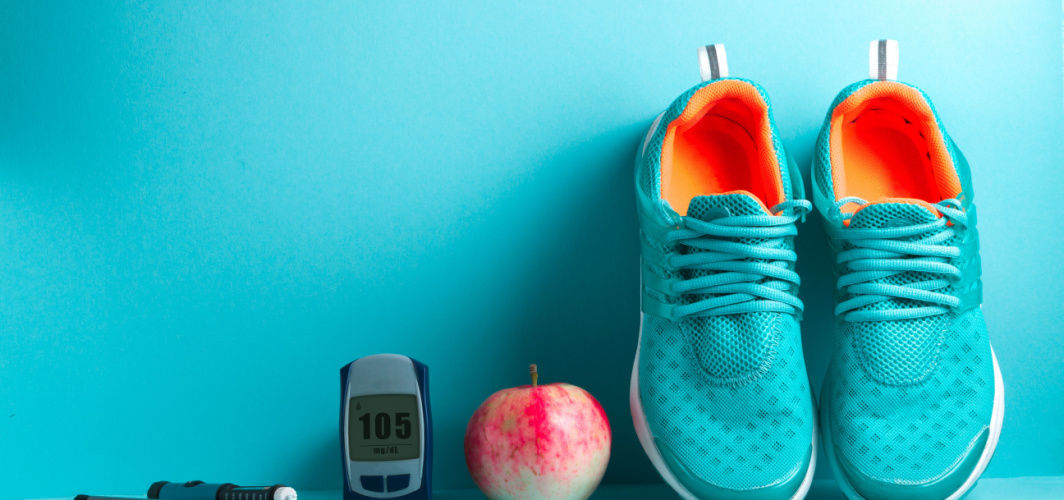Diabetes Management
Can Diabetes be Managed Through Lifestyle Changes Alone?
2 min read
By Apollo 24|7, Published on - 21 November 2023, Updated on - 22 February 2024
Share this article
0
0 like

Lifestyle changes are a fundamental aspect of diabetes management, particularly for type 2 diabetes, and they play a significant role in helping individuals maintain stable blood sugar levels, reduce the risk of complications, and lead healthier lives. While lifestyle modifications alone may not ‘cure’ diabetes, they can effectively manage the condition and, in some cases, even lead to remission.
Diet: A well-balanced and mindful diet is a cornerstone of managing diabetes through lifestyle changes. Monitoring carbohydrate intake, opting for complex carbohydrates that release energy gradually (such as whole grains and legumes), and avoiding sugary and highly processed foods can significantly impact blood sugar control. Lean proteins, healthy fats, and a diet rich in fibre can also contribute to better management.
Physical Activity: Regular physical activity is another key component of diabetes management. Exercise helps improve insulin sensitivity, enabling the body to use insulin more effectively to regulate blood sugar levels. It also aids in weight management, reducing the risk of obesity, a significant factor in type 2 diabetes. Engaging in activities like brisk walking, cycling, swimming, or weight training can be highly beneficial. Aim for at least 150 minutes of moderate-intensity aerobic activity per week, or as recommended by your healthcare provider.
Weight Control: For many individuals with type 2 diabetes, weight management is critical. Excess body weight is often associated with insulin resistance. Shedding extra pounds through a combination of a calorie-controlled diet and regular exercise can significantly improve blood sugar control. Even a modest weight loss can have a positive impact on diabetes management.
Blood Sugar Monitoring: Regular monitoring of blood sugar levels is crucial for understanding how lifestyle changes affect your diabetes. It helps you make necessary adjustments to your diet, exercise routine, and medications if required. Your healthcare provider can guide you on how often to check your blood sugar and what your target ranges should be.
Stress Reduction: Chronic stress can impact blood sugar levels. Implementing stress reduction techniques such as meditation, deep breathing, yoga, or simply taking time for leisure activities can help manage stress and contribute to better diabetes control.
Quit Smoking: Smoking is detrimental to overall health, but it can be particularly harmful to individuals with diabetes. Smoking increases the risk of complications like heart disease and nerve damage. Quitting smoking is a positive lifestyle change that can greatly improve your health.
Limit Alcohol Consumption: Alcohol can affect blood sugar levels, and excessive consumption can lead to erratic fluctuations. If you choose to drink, do so in moderation and consult your healthcare provider for guidance.
Conclusion
It's important to note that lifestyle changes are most effective when integrated into a holistic diabetes management plan. Diabetes is a complex condition, and individuals have varying needs. While some people can effectively manage their diabetes through lifestyle changes alone, others may require medications or insulin, especially in cases of type 1 diabetes.
Diabetes Management
Consult Top Diabetologists
View AllLeave Comment
Recommended for you

Diabetes Management
Diabetic Neuropathy: Why the Burning Sensation in Your Feet Should Not be Ignored?
Diabetic neuropathy refers to nerve damage caused by diabetes, often leading to a burning sensation in the feet. Ignoring this symptom can be dangerous as it indicates nerve damage progression. Diabetic neuropathy can cause loss of sensation, ulcers, infections, and foot complications. Seeking medical attention is crucial to prevent further complications.

Diabetes Management
Diagnosing Diabetes Early: Know How To Prevent Complications
Early diagnosis of diabetes brings several significant benefits. It facilitates prompt treatment, prevents future complications, enables to plan lifestyle changes, promotes self-management, and provides support. It also helps in controlling blood sugar, avoiding long-term health complications, facilitating healthy habits, taking proper medication, and monitoring blood sugar for better disease management.
.jpg?tr=q-80)
Diabetes Management
Mounjaro Side Effects: What You Need To Know!
Mounjaro, a medication that not only helps control blood sugar but also aids in weight loss, is now available exclusively on Apollo 24|7. Discover Mounjaro's side effects, from mild nausea to serious risks like pancreatitis and thyroid tumours. Learn symptoms, precautions, and when to seek medical help.
Subscribe
Sign up for our free Health Library Daily Newsletter
Get doctor-approved health tips, news, and more.
Visual Stories

8 Fruits That are Incredibly Healthy for Diabetes
Tap to continue exploring
Recommended for you

Diabetes Management
Diabetic Neuropathy: Why the Burning Sensation in Your Feet Should Not be Ignored?
Diabetic neuropathy refers to nerve damage caused by diabetes, often leading to a burning sensation in the feet. Ignoring this symptom can be dangerous as it indicates nerve damage progression. Diabetic neuropathy can cause loss of sensation, ulcers, infections, and foot complications. Seeking medical attention is crucial to prevent further complications.

Diabetes Management
Diagnosing Diabetes Early: Know How To Prevent Complications
Early diagnosis of diabetes brings several significant benefits. It facilitates prompt treatment, prevents future complications, enables to plan lifestyle changes, promotes self-management, and provides support. It also helps in controlling blood sugar, avoiding long-term health complications, facilitating healthy habits, taking proper medication, and monitoring blood sugar for better disease management.
.jpg?tr=q-80)
Diabetes Management
Mounjaro Side Effects: What You Need To Know!
Mounjaro, a medication that not only helps control blood sugar but also aids in weight loss, is now available exclusively on Apollo 24|7. Discover Mounjaro's side effects, from mild nausea to serious risks like pancreatitis and thyroid tumours. Learn symptoms, precautions, and when to seek medical help.



